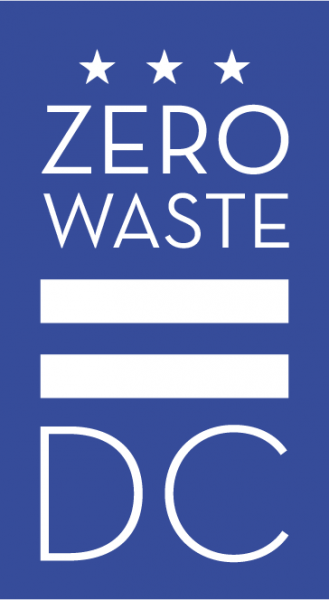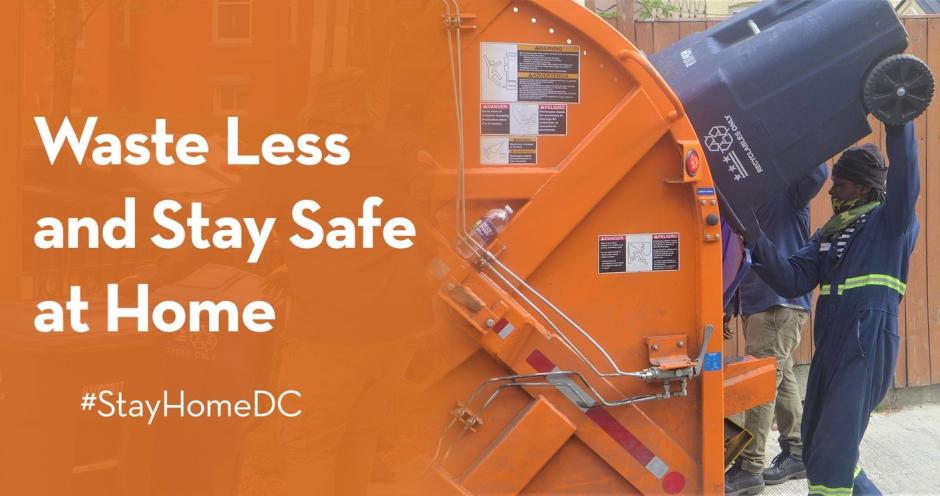
The DC Department of Public Works (DPW) is working to meet Mayor Bowser’s mission of making the District a cleaner, greener and healthier city while keeping District workers and residents safe during the coronavirus (COVID-19) public health emergency.
Below are some tips to help manage your waste while staying safe at home (#StayHomeDC), and resources to reduce your waste overall.
We appreciate your help in keeping everyone, including our crews safe and healthy. For updates on the District’s response to the coronavirus (COVID-19), visit coronavirus.dc.gov.
Bag Trash and Leave Recycling Loose
Please remember that DPW collects containerized trash and recycling. To properly prepare for collection and help minimize content contamination and unnecessary exposure to collection crews, you should:
|
Bag Trash |
Do NOT Bag Recycling (No Plastic Bags) |
Close Lids on Both |
Disinfect Bin Lids |
Wash Hands |
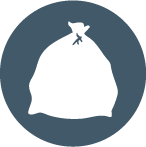 |
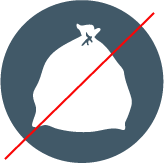 |
 |
 |
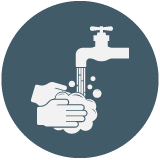 |
• Bag all trash and place it in the trash bin
• Leave recycling loose and place all recycling in the bin
• Close the lid on recycling and trash bins
• Periodically disinfect bin lids and handles to reduce exposure to you and workers
• Wash your hands after taking out the trash and recycling.
Wipes, disposable gloves, and masks go in the trash
Place used paper towels, tissues, gloves, masks or other personal protective equipment (PPE) in a bag that is securely closed and discard them in your trash bin.
Wipes are not flushable or recyclable.
Disposable gloves are also not recyclable and should be placed in the trash.
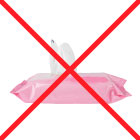 |
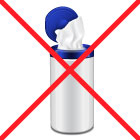 |
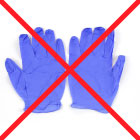 |
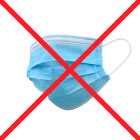 |
Don’t litter with PPE as it exposes workers and the public when cleaning them up.
Waste Less and Staying Safer at Home
Shop with a plan and shop less
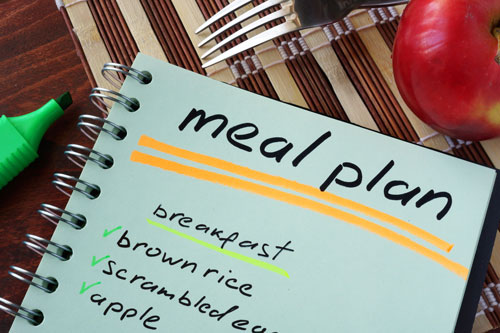
Plan your shopping trip. This helps save time, focuses you on buying what you need in quantities you will use, reduces waste, saves money and minimizes your trips to the store.
Shop local if possible. Many corner stores will have what you need in a pinch and have fewer crowds.
If you can, buy in bulk. This helps reduce packaging and keeps you safe through fewer trips to the store.
Store Food Properly
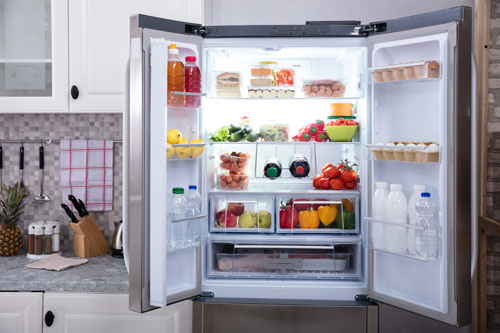
Organize your fridge and pantry. You're more likely to consume the items and avoid waste through spoilage.
Place the oldest items in front. This way you won't forget to eat them.
Learn to love your freezer. Many perishable items can be frozen to extend shelf life.
This useful website has tons of information on how to store your most common pantry items: savethefood.com/storage
Creatively re-purpose leftovers then compost the rest.
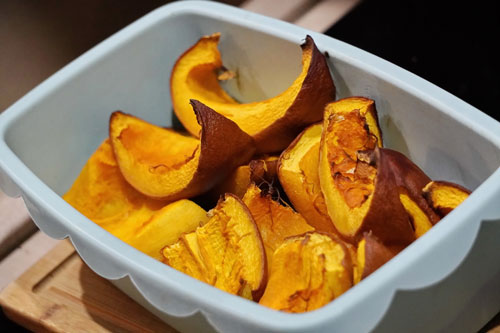
Explore “root to stem” and “nose to tail” cooking. Use broccoli stems/stalks, beet greens, radish greens, turnip greens, and carrot tops to make delicious side dishes, soups, and more.
Eat or Toss is a great website to find delicious recipes that use commonly waste food items.
Compost keeps food waste from going to landfills and adds nutrients to our soil.
You can compost food waste by taking it to food waste drop off sites that have an approved COVID-19 operating waiver or composting at home. To learn more about how to start a compost pile check out our Home Composting Guide.
Reuse
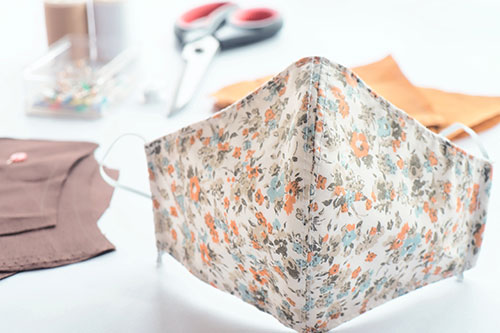
Reusing items can help reduce your waste. Many things in your home are already in a condition for reuse.
For storage, use items such as jars and cheese and butter tubs.
Reuse old clothing to make a face mask. Old socks make excellent washable and reusable cleaning rags.
Recycle
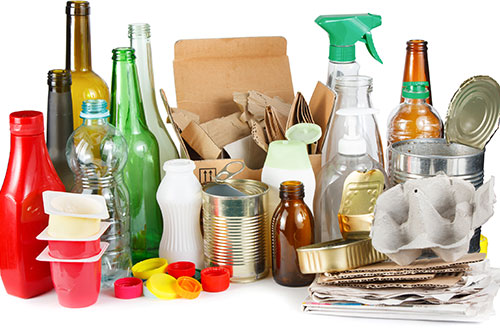
Recycling helps reduce our impact on our limited natural resources. Items like canned goods, soda cans, plastic bottles, mixed paper such as cereal and cracker boxes are recyclable and can be placed in your blue bin. Remember to keep items clean and empty when recycling them.
To learn what items can be recycled visit our
For some expert tips, check out our new Recycling 101 Videos.
Empty, Flatten & Recycle shipping Boxes
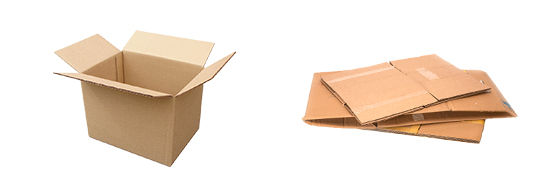
Ordering online is convenient and does help with social distancing practices. Shipping boxes should be recycled when finished. Remember to empty, flatten and place your shipping packages and boxes inside your blue recycle bin.
What to do with other types of shipping packaging:
-
Paper packaging: Recycle in your blue bin.
-
Bubble wrap, plastic air pillows or bubble packaging: Check for the How2Recycle label and bring to a grocery store drop-off for recycling or place in your trash.
-
Mix of paper and plastic: Place in the trash
-
Styrofoam blocks or peanuts: Those go in the trash.
Taking on a Spring Cleaning Project
Extending the life of items by repairing or refurbishing keeps them out of the waste stream. If you can, learn how to do simple repairs. Consider an online course and learn how to sew, repair your broken coffee maker, and/or repair your bike or scooter for when it's time to come out again.
If you can, avoid “springing clean” at this time. Collection workers are working harder and more carefully right now, sometimes with fewer people. If you do “spring clean,” please consolidate your items for donation. Clothing, electronics, and furniture can be dropped off at a later time. Use our donate repair directory as a resource.
Consolidate and properly store hazardous waste and broken e-waste items for later drop-offs. Visit: https://dpw.dc.gov/service/household-hazardous-waste-e-cycling-document-shredding for tips on how to safely store these items until drop-offs resume.
If you find yourself with excess food, consider contacting a local food pantry as many are still accepting food donations.
For resources and additional information on the District of Columbia Government’s response to coronavirus (COVID-19), please visit coronavirus.dc.gov.
